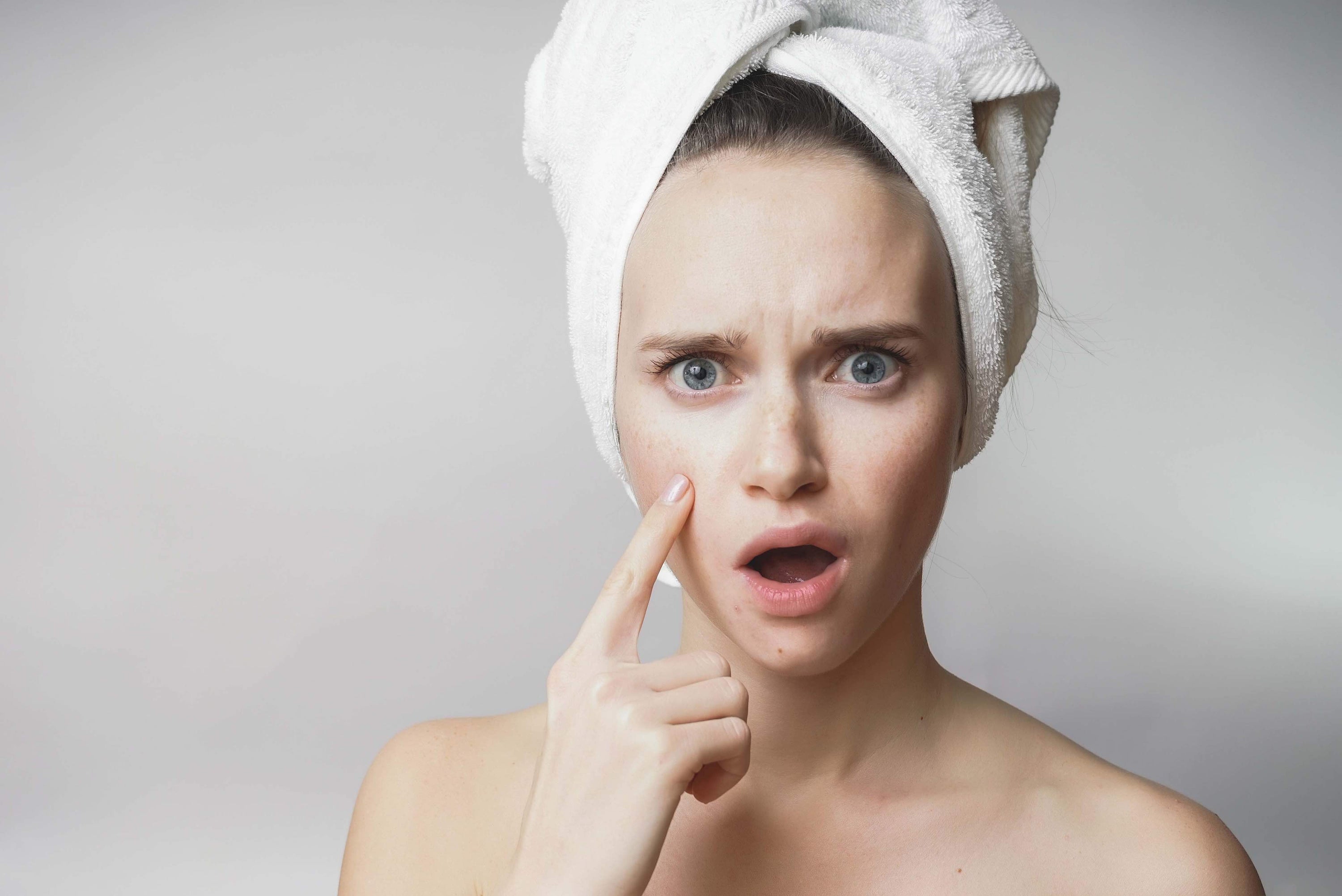Is Acne Stressing You Out?
Acne breakouts can be an incredibly stressful experience. Not only can they be physically uncomfortable, but they can also take a toll on one's mental health. So, is there a connection between stress and acne? In this blog post, we will explore:
- The link between stress and acne
- The benefits of taking dietary supplements to reduce stress and acne breakouts
- Some practical tips for avoiding stress-related acne breakouts.
With this information, you can start to understand the connection between stress and acne and take the necessary steps to reduce your breakouts.

What is the Connection Between Stress and Acne?
Stress is considered one of the factors that can negatively affect skin health. It can trigger acne formation or make existing acne worse! When the body experiences stress, it increases the production of cortisol, a stress hormone. Cortisol, in turn, stimulates the production of oil (sebum) in the skin which can clog pores and lead to the formation of acne. Additionally, stress can weaken the immune system rendering it less effective at fighting off the bacteria that contribute to acne.
In addition, stress can also lead to skin-picking and scratching which can introduce bacteria into the skin and further worsen acne. Additionally, stress can disrupt the normal functioning of the gut microbiome which can contribute to skin inflammation and acne formation. Stress also tends to negatively impact a person's sleeping, eating, exercising, and skin cleansing habits which further negatively impacts their skin.
What about dietary supplements?
Dietary supplements can help to relieve stress and anxiety by providing the body with essential vitamins, minerals, and other nutrients that are important for mental and physical health.
Here are some dietary supplements that have been shown to have a positive impact on stress and anxiety:
- Omega-3 fatty acids are essential fatty acids that can help to reduce inflammation in the body. They have also been shown to have a positive impact on mood and may help to reduce symptoms of anxiety and depression.
- B vitamins, especially B1 (thiamine), B6 (pyridoxine) and B12 (cobalamin) play a critical role in the production of neurotransmitters that regulate mood, such as serotonin and dopamine. A deficiency in B vitamins can contribute to feelings of stress and anxiety.
- Magnesium is an essential mineral that is involved in many physiological processes, including the regulation of stress hormones. Low levels of magnesium have been linked to an increased risk of anxiety and depression.
- Ashwagandha is an adaptogenic herb that has been used for thousands of years to reduce stress and anxiety. It helps to balance the stress response by regulating cortisol levels and promoting a sense of calm.
- L-theanine is an amino acid found in green tea that has been shown to promote feelings of calm and relaxation. It works by increasing the production of neurotransmitters that regulate mood, such as GABA and dopamine.
How else can stress and anxiety be managed?
Stress and anxiety are a normal part of life, but when left unchecked, they can have a significant impact on our mental and physical health. Managing stress and anxiety is crucial for maintaining overall well-being and can help to improve our ability to cope with life’s challenges. Here are some effective ways to manage stress and anxiety:
- Regular exercise has been shown to reduce stress and anxiety by increasing the production of fee-good hormone and improving mood. Even moderate physical activity such as walking, jogging, or cycling can have a positive impact.
- Practicing mindfulness and meditation can help to reduce stress and anxiety by promoting relaxation and calmness. Research has shown that mindfulness and meditation can help to decrease cortisol levels, the hormone associated with stress.
- Deep breathing is a simple, yet effective way to reduce stress and anxiety. It involves taking slow, deep breaths and focusing on the sensation of breathing. This can help to slow down the heart rate, lower blood pressure, and promote relaxation.
- Eating a healthy diet, getting adequate sleep, and avoiding alcohol and nicotine can help to reduce stress and anxiety levels. Maintaining a healthy lifestyle can also help to improve overall physical and mental health.
Does Codex have anything in its toolbox for managing stress?
The use of dietary supplements as a tool to relieve stress and anxiety have gained scientific traction based on various research studies. After having extensively vetted the available research materials on this topic, the scientists at Codex have developed their own, patent-pending dietary supplement formulation called SHAANT Skin De-Stress Dietary Supplement based on a synergistic blend of unique stress-reducing active ingredients.
In addition to calm-inducing active ingredients, the supplement also includes actives that possess anti-inflammatory, metabolism-, and hormone-supporting properties.
While clinical studies are still ongoing, we believe that the daily use of this supplement, coupled with our patented and recently launched SHAANT line of products is expected to yield synergistically efficacious results when it comes to the treatment of inflammatory skin disorders such as acne.
Lastly, we would be remiss if we didn’t also mention our uber popular SPA COLLECTION of soothing aromatherapeutic salt bath soaks which are sure to relieve any stress and anxiety you may be experiencing.
In a Nutshell
Managing stress levels is essential for keeping healthy skin intact. Dietary supplements can be a useful tool for reducing stress and anxiety but should not serve as a substitute for a healthy diet and lifestyle. Additionally, it’s important to consult with a healthcare provider before starting any new supplement regimen, as some supplements can interact with medications or have adverse side effects.

